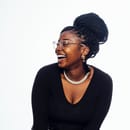Recently, the self-care campaign has gotten a substantial boost due to the seemingly continuous stressors that have happened over the past year. Political chaos, racial injustice, financial instability, and the ongoing pandemic have taken a toll on those who were already barely hanging on. Now more than ever, self-care is crucial to prevent mental and physical burnout, but the luxury of dedicating time to preserve oneself is not afforded to everyone.
The idea of self-care seems so simple in theory. “Treat yourself and unwind!” However, for a lot of people, it is easier said than done. The problem with this new push for self-care is the lack of feasible options for those who can’t just drop everything and have personal time. What about single parents? College students drowning in their studies? People working 40+ hours trying to make sure their bills are paid? It’s hard to sell this idea of complete relaxation and escape to people who have unforgiving schedules.
Millions of people are struggling now more than ever to simply ensure survival. With many employers and education institutions still not recognizing the necessity of wellness days, it often feels like you have to put your mental health on the backburner to avoid negative consequences. Even if you do find the time to practice self-care, the conversation of accessible options comes back up. The mainstream self-care movement has presented itself as yoga, spa-days, therapy and other financially unobtainable practices for the people who need it most. I am in no way saying that those activities are the only forms of self-care, but they have become the face of the movement, further alienating those who can not afford to indulge.
Taking all of that into consideration, it’s much easier to see the imbalance of privilege amongst those who can freely practice self-care without the anxiety of disrupting their daily lives. There needs to be an overhaul in redefining the idea of self-care to reflect and include the varying, intersecting lives of people. As writers, Ashlynn Polanco and Kate Loving said in their article, Self Care and Privilege During the COVID-19 Pandemic,
“When promoting self-care practices, take into consideration the needs of different individuals and groups. We all have different identities and lived experiences that shape how we best are able to take care of ourselves. Self-care practices are unique as people are.”
Let it be known that this was not intended to shame those who do find their peace and healing with traditional self-care practices. Self-care can look like anything, even if that means indulging and taking multiple days off for yourself. However, it is equally important to amplify self-care on a more internal scope that allows everyone to create their own way of tending to their mental and physical needs.



